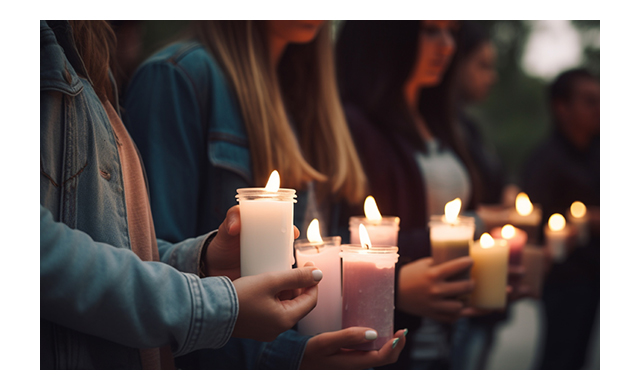Written by our Founder and CEO, the Celebrations Pulse letters aim to engage with our community. By welcoming your ideas and sharing your stories, we want to help you strengthen your relationships with the most important people in your life.
When I sat down last weekend to begin writing today’s Celebrations Pulse, I had planned to focus on Boss’s Day, which is tomorrow. Then I turned on my TV and saw the horrific images coming out of Israel.
The violence was thousands of miles away, but that didn’t matter. It struck me – as I’m sure it did many of you – like a gut punch. Innocent people were slaughtered at a music festival. Women and children were taken from their homes. Even babies were among the hundreds of innocent people murdered.
The senseless tragedy has left much of the world with a profound sense of loss. It’s the same feeling we had after 9/11, the atrocities of Russia’s Ukraine invasion, school shootings, and other unfathomable events we’ve increasingly experienced in this country and abroad.
What we’re feeling – and now need to process – is collective grief.
What is collective grief?
After a public tragedy, intense feelings of shock, sadness, anger, frustration, and helplessness often follow. You may not know anyone involved in the event, but you can imagine the grief their families and communities feel. This is collective grief.

In addition, your experiences with personal grief can resurface at these times. If you’ve lost someone to violence, it’s not uncommon for the raw emotions to return as personal grief and collective grief coexist.
The psychologists who make up the 1-800-Flowers.com Connectivity Council point out that the grief we feel is valid. And, like any source of grief, collective grief can be consuming unless it’s processed.
Ideas for coping with collective grief
Processing collective grief begins with recognizing what we are feeling. If we can recognize it, we can start to manage it. The Connectivity Council offers four suggestions:
1. Channel feelings into action
When a sense of helplessness follows in the wake of a public tragedy, it can be useful to channel those feelings into action. Our experts encourage those who are grieving to see where they can get involved if that’s something that feels right for them. Perhaps that means attending a march, donating to a cause, or finding ways to get involved at the local, national, or international level.
Sometimes feeling like you’re an active part of something can make you feel like you have a bit of control in a situation that feels very uncontrollable.
2. Bring it back to now
During periods of collective grief, we may experience moments when we feel like our thoughts are spiraling out of control or we’re going through a physical change (e.g., rapid heart rate, trouble concentrating). When this happens, try a few grounding techniques that can help bring you back to the present moment. While these may look different to different people, meditation, drawing, or spending time in nature are good places to start.
3. If needed, take control of your newsfeed
During a public tragedy, we often turn to the news for information. But sometimes all the information becomes too much. If you feel like you’re overwhelmed by the events, you should consider limiting how much or how often you check the news. If you’re feeling overwhelmed, try limiting the news checks to once or twice a day – and make sure you are getting information from a trustworthy source.
4. Seek support
Even when we’re collectively experiencing the same event, grief can still feel incredibly isolating. Having the right support system in place — whether that’s a licensed professional or simply a friend or family member you can talk to when you’re feeling overwhelmed — can help.
Online communities for grief, such as private peer-to-peer support groups, are also widely available. Joining or creating a space where you can share stories, give suggestions for coping, and generally assure one another that you’re not alone can bring heaps of comfort.
Community is the salve we need, especially in times of collective grief. Being part of something greater than us, and knowing we are not alone in experiencing these feelings, provides us with a certain sense of comfort during an otherwise isolating time.
All the best,
Jim








